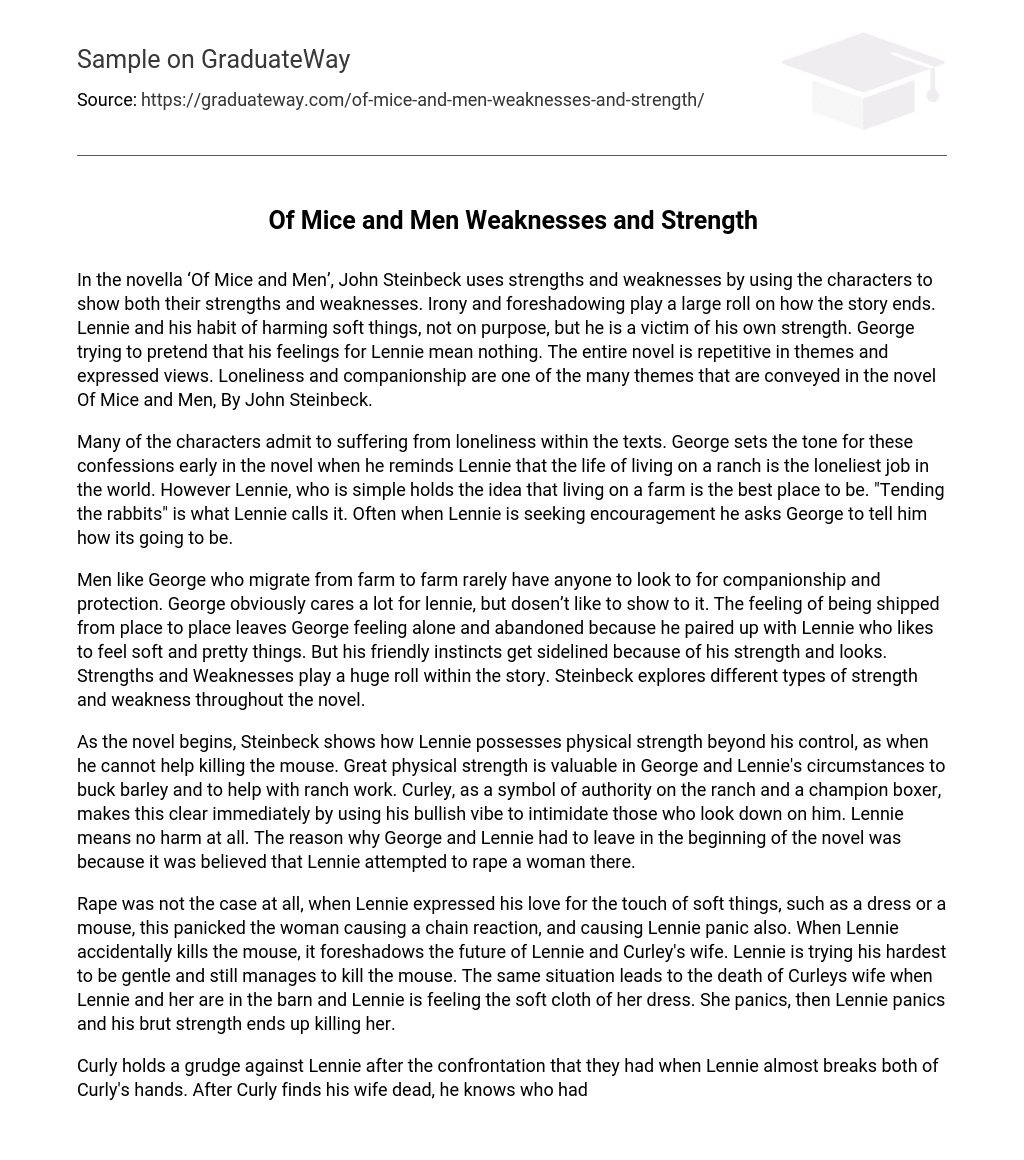In ‘Of Mice and Men’, John Steinbeck utilizes the characters to emphasize their unique strengths and weaknesses, ultimately shaping the outcome of the story. Irony and foreshadowing heavily influence its ending, as Lennie’s immense strength inadvertently leads to harm towards innocent creatures, eventually causing his own downfall. Furthermore, George attempts to downplay his emotional attachment to Lennie. The novella consistently presents recurring themes and perspectives, creating a sense of repetition throughout. Steinbeck delves into multiple motifs like loneliness and companionship within ‘Of Mice and Men’.
In the texts, several characters openly express feelings of loneliness. George establishes this theme early on in the novel by reminding Lennie that working on a ranch is an extremely solitary occupation. However, Lennie, despite his limited understanding, believes that living on a farm is the ideal situation. He refers to it as “tending the rabbits.” Lennie frequently turns to George for reassurance and asks him to describe their future together.
Men like George, who frequently move from farm to farm, often lack companionship and protection. Although George clearly cares for Lennie, he struggles to openly express his affection. The constant sense of displacement makes George feel isolated and abandoned, particularly because he has formed a bond with Lennie, who possesses a fondness for tactile stimulation and beauty. However, George’s amiable nature is overshadowed by Lennie’s physical strength and appearance. Strengths and weaknesses play a significant role in the narrative as Steinbeck examines various forms of strength and weakness throughout the book.
At the start of the novel, Steinbeck highlights Lennie’s uncontrollable physical strength, demonstrated when he accidentally kills a mouse. This strength is important for George and Lennie’s situation as it is needed for manual labor such as bucking barley and assisting with ranch work. Curley, seen as an authoritative figure on the ranch and a skilled boxer, establishes this notion immediately by using intimidation to assert his dominance over those who underestimate him. It is crucial to note that Lennie never intends any harm. The reason for George and Lennie’s departure at the beginning of the novel is based on the belief that Lennie had made an attempt to assault a woman there.
When Lennie expressed his love for the touch of soft things, such as a dress or a mouse, the woman panicked, leading to a chain reaction of panic in Lennie as well. The accidental killing of the mouse foreshadows Lennie’s future and Curley’s wife’s death. Despite Lennie’s efforts to be gentle, he still manages to kill the mouse. Similar circumstances ultimately lead to the death of Curley’s wife in the barn, as Lennie touches the soft cloth of her dress. Her panic sets off Lennie’s panic, and his brute strength ultimately kills her.
Curly bears a grudge against Lennie following their earlier confrontation where Lennie nearly crushes both of Curly’s hands. After discovering his wife’s lifeless body, Curly identifies the perpetrator. Consequently, Lennie and George are compelled to once again flee from the authorities. The story reaches its climax when Lennie once more implores George to describe their future, prompting George to instruct Lennie to envision tending to rabbits before ultimately shooting him in the head. This turn of events may have granted Lennie a form of liberation, freeing him from being trapped and disabled within his own body.





